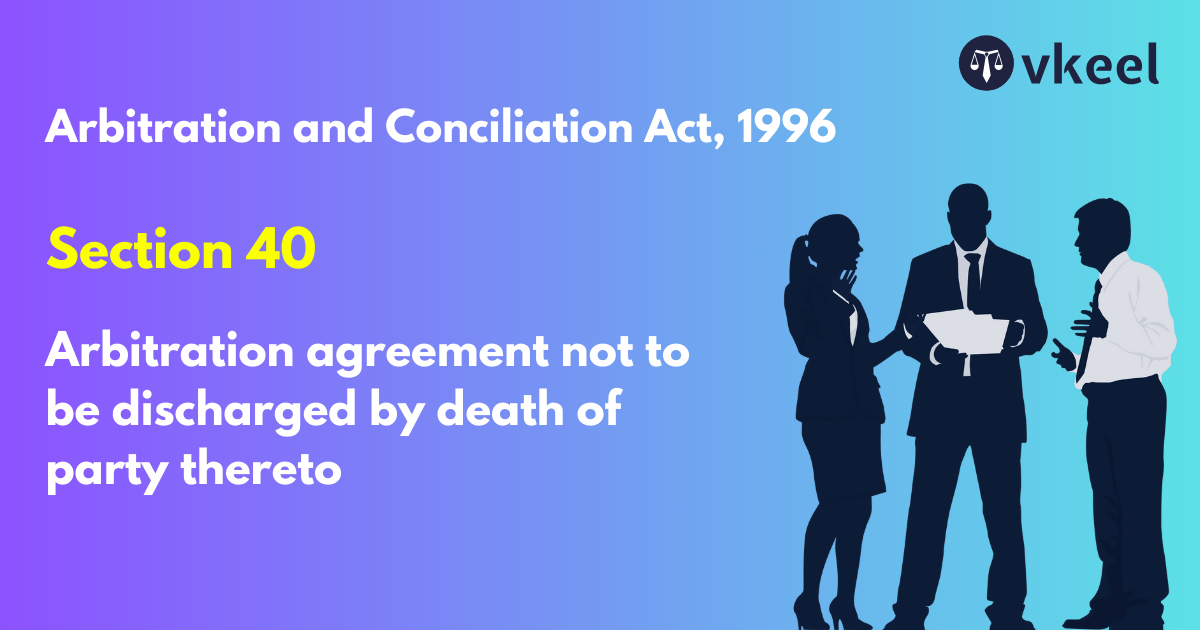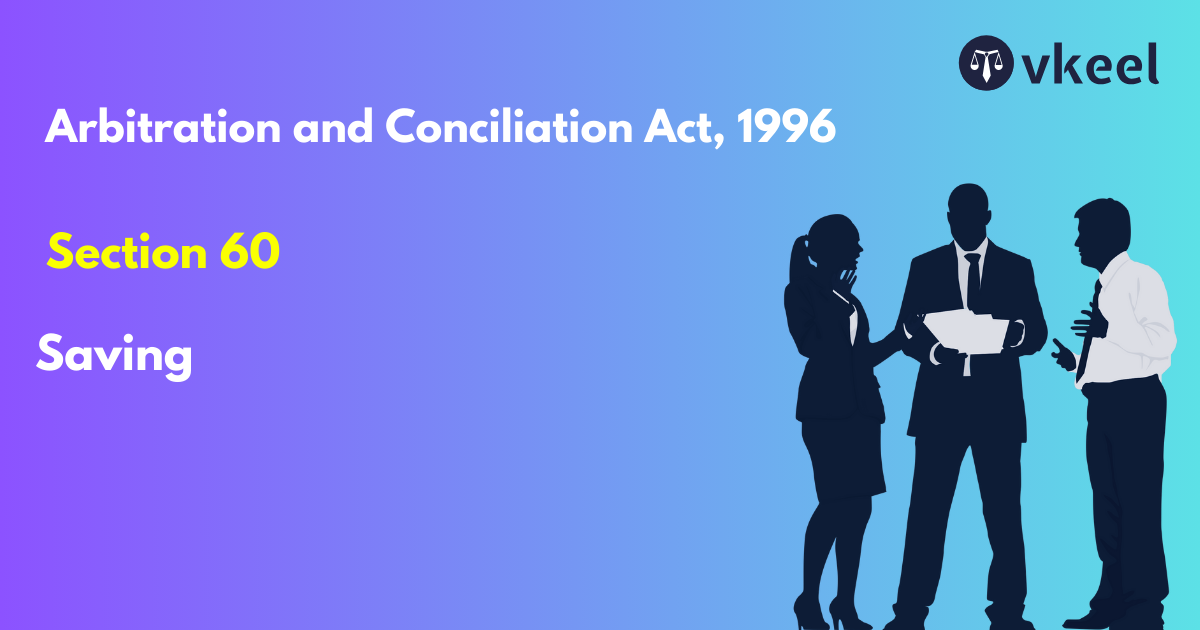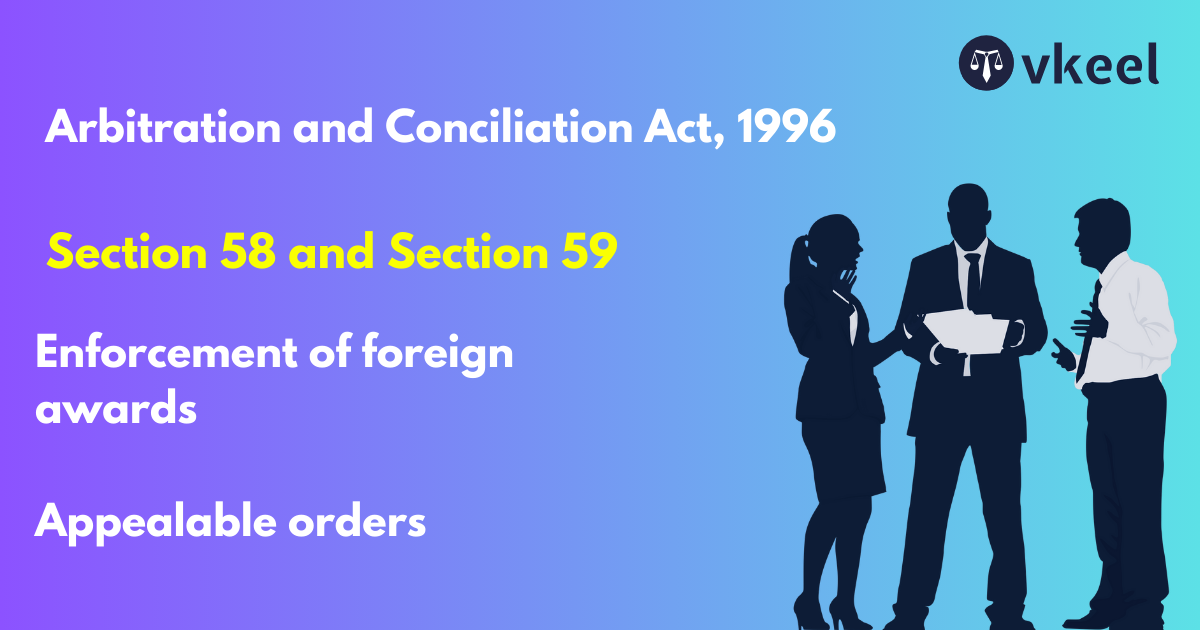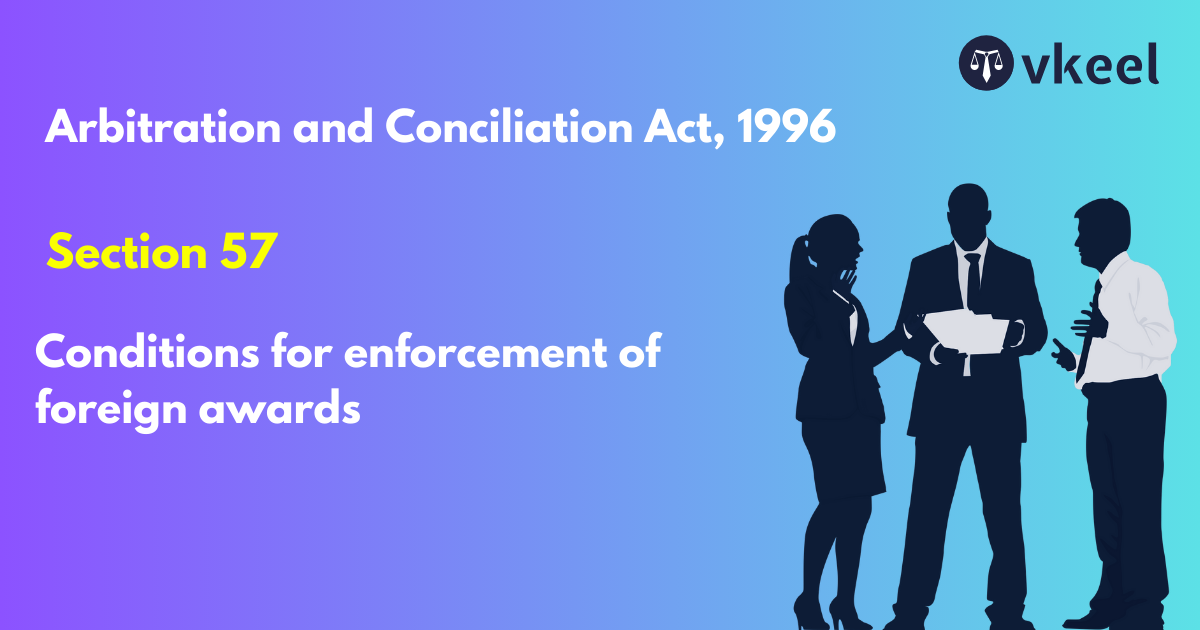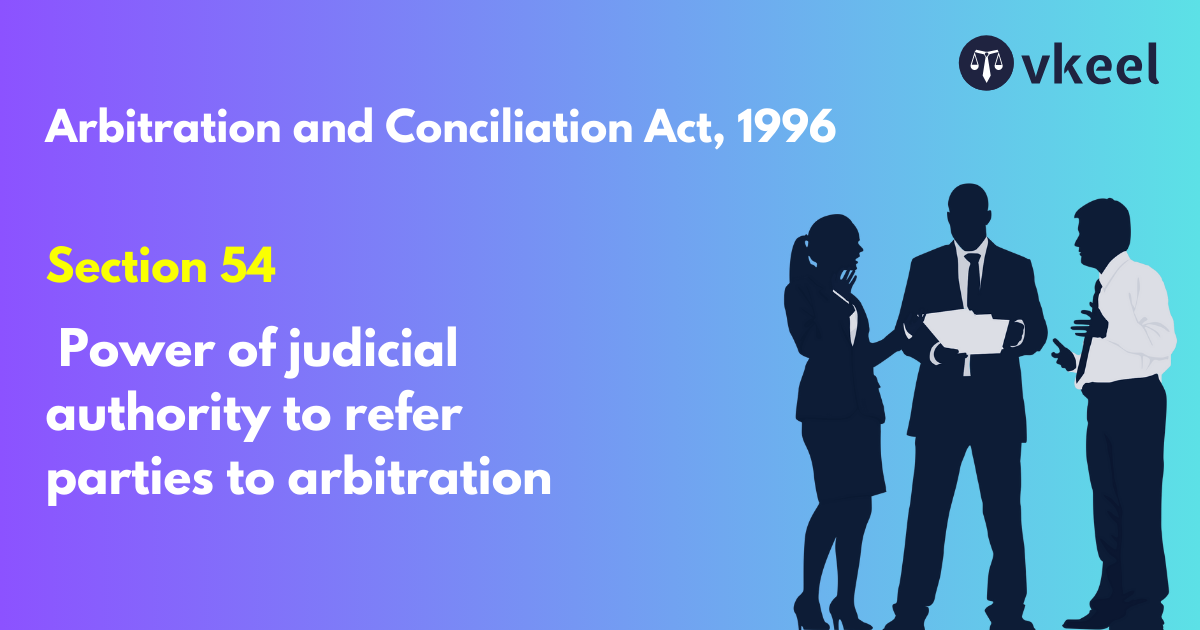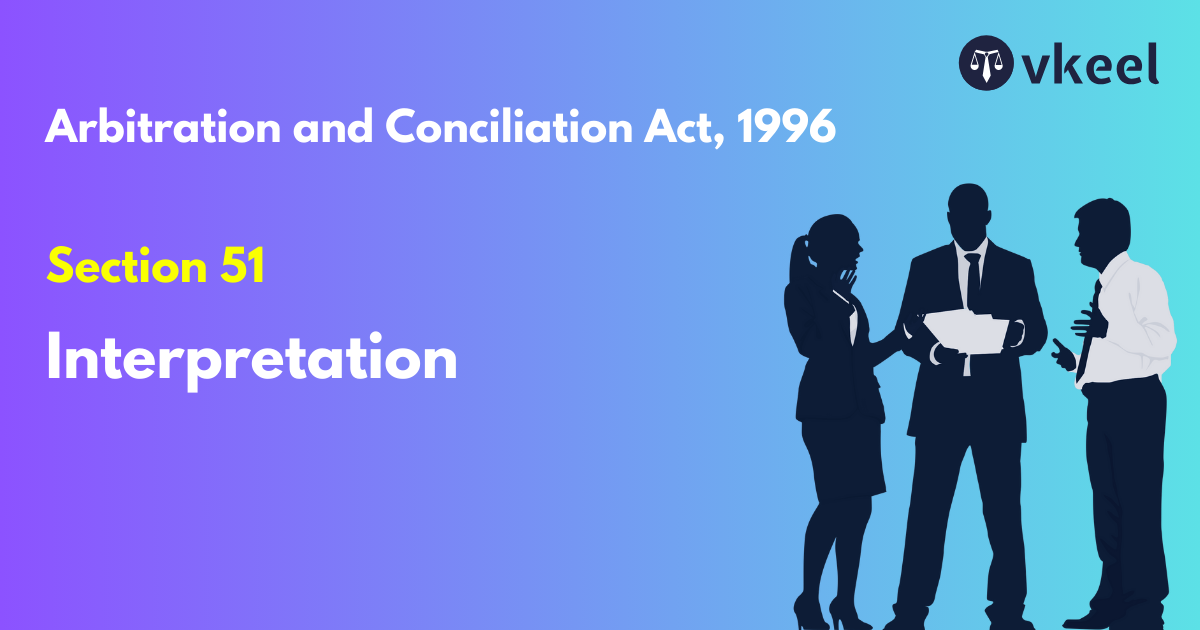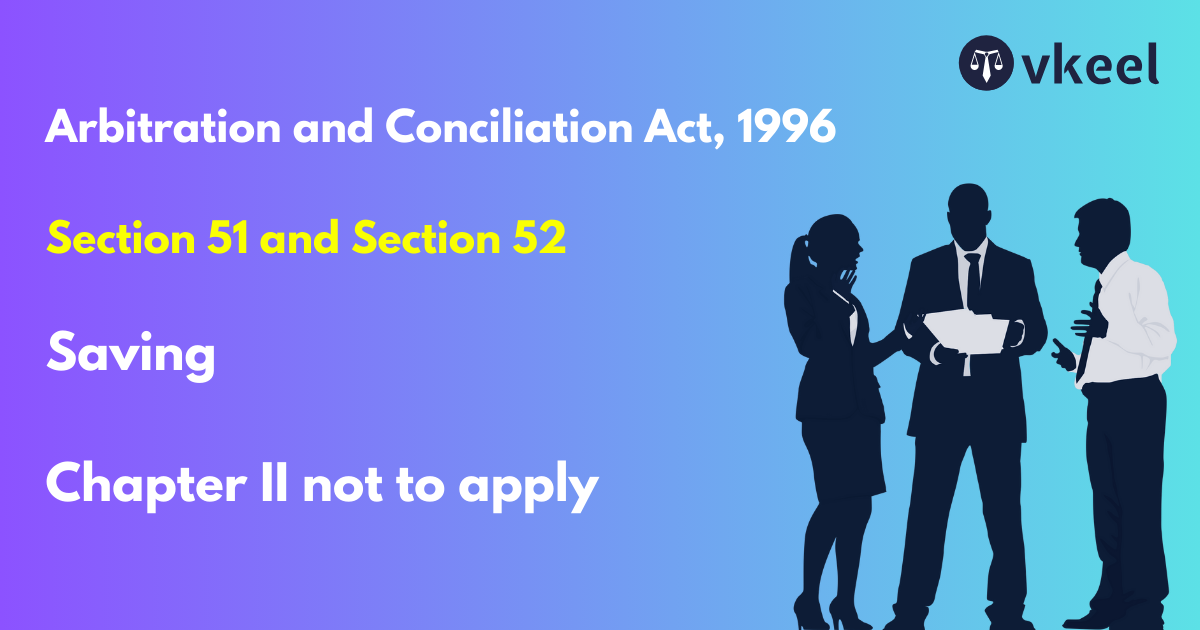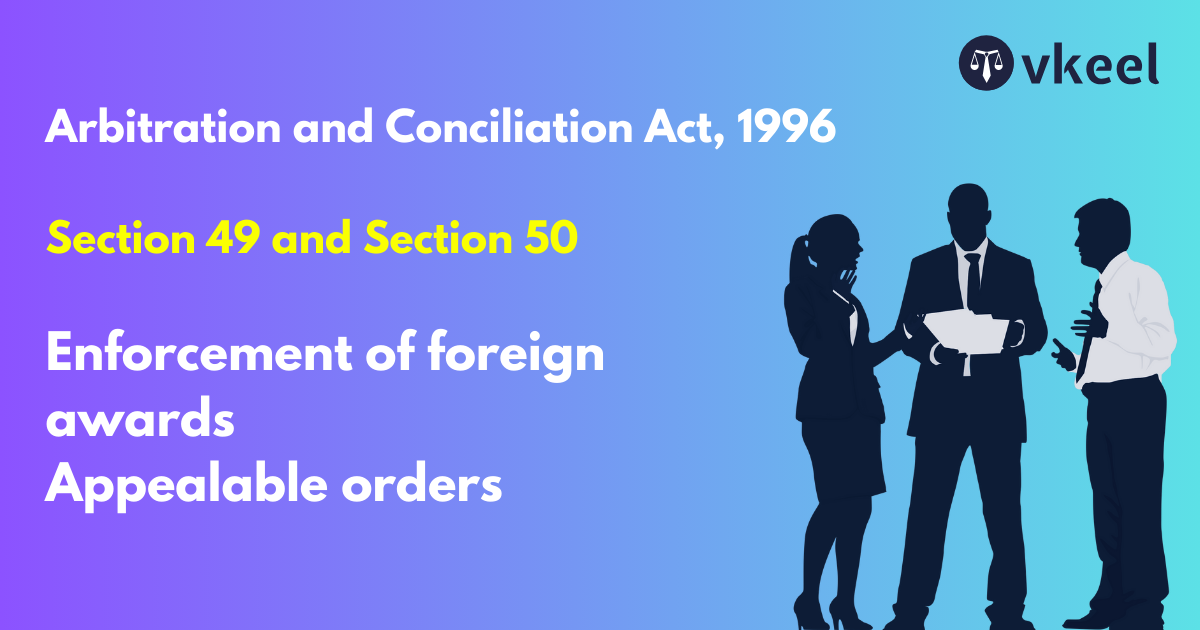Section 40: Arbitration and Conciliation Act, 1996
By Nivedita Dhiman
Table of Contents
Introduction of Section 40
Section 40 of the arbitration and conciliation act provides that the arbitration agreement does not stand discharged upon death of the parties under the agreement and is enforceable against the legal representatives. As such, the petitioner was held to be entitled to invoke the arbitration clause against the legal representatives of the deceased party. It refers to actions in torts where the right claimed by a person against a tortfeasor does not survive after his death.
The agreement remains enforceable on the death of a partner against the legal representatives of the deceased partner provided that the right to sue in respect of the cause of the action continues to survive.
Section 40 of arbitration and conciliation act
Arbitration agreement not to be discharged by death of party thereto
(1) An arbitration agreement shall not be discharged by the death of any party thereto either as respects the deceased or as respects any other party, but shall in such event be enforceable by or against the legal representative of the deceased.
(2) The mandate of an arbitrator shall not be terminated by the death of any party by whom he was appointed.
(3) Nothing in this section shall affect the operation of any law by virtue of which any right of action is extinguished by the death of a person.
Landmark Judgements of section 40
Perumalla Satyanarayana v Perumalla Venkara Vengayya, IIR 1903
Under the earlier English law, the authority of the arbitrator could be revoked at the pleasure of any of the parties appointing the arbitrators. In the event of the death of the party which had appointed the arbitrator, his authority stood revoked automatically. Neither earlier nor now is such a course followed.
Shivchandrai Jhunjhunwala v Panno Bibi, AIR 1943
When a reference comes before the arbitrators and a party, who is not the original contracting party, seeks to enforce the arbitration agreement, it is within competence of the arbitrators to determine whether the party is entitled to enforce the agreement, and the decision of the arbitrators on that question cannot be challenged on the ground that the decision was given without adequate materials, i.e., materials on which a court of law would not have decided to that effect.
Binayakdas Acharjee Chowdhury v Sashi Bhushan Chowdhry, AIR 1922
If an agreement was made to refer a dispute about property to arbitration by some of the parties on their own behalf and on behalf of the minors and the investigation had been finished and documents produced before the arbitrators while they were alive; held, there is no rule of procedure by which the arbitrators could substitute the representatives or guardian ad litem for infants.
Tirtahalal Dey v Bhuban Moyee Dasi, AIR 1949
If there is a binding reference to arbitration, all that is necessary to be seen is that there is a substantial representation of the different interests before the arbitrator. There is no rule of procedure by which the arbitrator could substitute legal representatives or appoint a guardian ad litem for infants. The question whether the award would be binding or not on the legal representatives would depend on facts and circumstances of the case.
Abdul Ghani v Siraj-ud-din, AIR 1939
Upon disputes as to accounts having arisen between groups of partners, the matter was referred to arbitration. Shortly afterwards, a partner in one group died but the arbitration proceedings were conducted in the absence of and without notice, to the legal representatives of the deceased partner; held, that the proceedings were not binding on the legal representatives of the deceased partner as they were not party to it.
Conclusion of section 40
The above-mentioned section has been enacted with the declared object of keeping arbitration agreements alive even after the death of the signatories to the agreement. The death of the party will not operate as revocation of the agreement and the agreement will be enforceable against the legal representatives of the legal party.
Disclaimer:
The information provided in the article is for general informational purposes only, and is not intended to constitute legal advice or to be relied upon as a substitute for legal advice. Furthermore, any information contained in the article is not guaranteed to be current, complete or accurate. If you require legal advice or representation, you should contact an attorney or law firm directly. We are not responsible for any damages resulting from any reliance on the content of this website.

